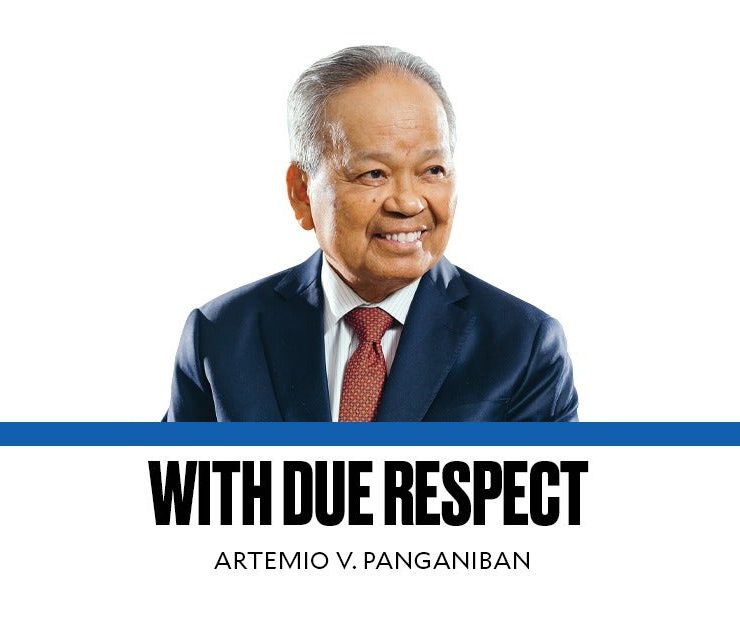Comelec must stop acting abusively, whimsically

In two past columns, I chastised the Commission on Elections (Comelec) and its chair, George Erwin Garcia (GEG), whom I have known to be an eminent election lawyer, for repeatedly committing grave abuse of discretion amounting to lack or excess of jurisdiction (GAD). To be nullified, the exercise of discretion must not only be abusive, but must be gravely abusive, whimsical, arbitrary, capricious, and actuated by personal bias or hostility or ill will.
THUS, ON OCT. 14, 2024, I wrote (“Quo vadis, George Erwin Garcia?”) that the Supreme Court (in Smartmatic v. Comelec, April 16, 2024, per J Jose Midas P. Marquez, en banc, 15-0) lambasted the Commission for committing GAD in barring petitioner Smartmatic “from participating in any public bidding for elections” due merely to information from the United States regarding an ongoing criminal investigation of former Comelec chair Andres Bautista. Elementary it is that even first year law students know that before acting against any person or entity (Smartmatic, in this case), due process must first be observed.
Moreover, in another case (De Guzman-Lara v. Comelec, Aug. 6, 2024, per J Jhosep Y. Lopez, en banc, 13-0-2), the Court again called out the poll body for committing GAD in failing to compute that a day is composed of 24 hours. And yet again, in Macalintal v. Comelec, the Court en banc issued an ex-parte temporary restraining order (TRO) stopping the Comelec from allowing public appointive officials who accept nominations as party-list representatives to remain in office—even after their acceptance of their nominations—for about two months, till the official campaign period begins.
And on Oct. 28, 2024, I penned (“Comelec, GEG knocked but not yet out”) that the Court en banc again issued TROs stopping the Commission from disqualifying Mandaue City Mayor Jonas C. Cortes, former Albay governor Noel E. Rosal, and Cebu City Mayor Michael L. Rama from the 2025 elections because the order of the Office of the Ombudsman dismissing the trio from their respective offices has not attained finality. Again, elementary it is that a decision that has not become final is not a source of disqualifications or adverse conclusions.
DAYS AGO ON JAN. 14, the Comelec was again bombarded with TROs by the Court in five cases based merely on the petitioners’ verified allegations of GAD: Mustapha v. Comelec, Savellano v. Comelec, Balintay v. Comelec, Erice v. Comelec, and Ritualo v. Comelec. Last Jan. 17, another TRO barrage befell the Comelec in David v. Comelec, Oñate v. Comelec, and Sta. Ana v. Comelec. In the three cases, the petitioners were arbitrarily declared “nuisance candidates” by the Comelec.
Earlier, in Ollesca v. Comelec (July 30, 2024, per Senior Associate Justice Marvic MVF Leonen, en banc, 13-0-2 but released only on Jan. 14, 2025), the Court voided for GAD again a Comelec resolution declaring petitioner a nuisance candidate for president in the 2022 elections.
Inasmuch as the 2022 presidential elections is already over, the case has become moot, but the Court decided it anyway to guide the Comelec from repeating its arbitrary actions. Sadly, and ironically, the Commission repeated its gravely abusive acts in the three cases earlier mentioned.
Under Section 69 of the Omnibus Election Code, nuisance candidates have “no bona fide intention to run for the office” they seek and merely put the election process in mockery or disrepute or cause confusion among the voters. The Comelec declared the petitioner as a nuisance candidate due to his failure to show he had the financial capacity to “sustain a decent and viable campaign on his own.”
The Court held that (1) the lack of financial capacity, by itself, is not a ground for disqualification as it imposes a property qualification that is barred by the Constitution; and (2) the Comelec failed to show proof that petitioner lacked the capacity to wage a nationwide campaign; the burden of proof belongs to the party that alleges a fact not to the adverse side; and Comelec cannot rely on mere speculation that petitioner, as an unknown aspirant, had no such capacity.
IN OBEDIENCE TO THE TROs, the Comelec—for the first time in its history—stopped the ongoing printing of ballots and discarded about six million of them (costing P22 each) to print new ones that would include the names of the petitioners who were arbitrarily excluded by the Commission. Notably, more similar cases are awaiting action by the Court.
I do not remember any Comelec that has committed as many gravely abusive acts again and again and again on practically the same ground—the failure to observe the very basic constitutional rights to due process and equal protection of the laws. These multiple GADs shame and ruin the vaunted competence and independence of the Comelec especially of its chair, GEG, who heretofore had enjoyed an enviable reputation for integrity and trustworthiness.
The Comelec must stop its gravely abusive, arbitrary, whimsical, and capricious actions and attend to its mandate to be fair, objective, and judicious in exercising its quasi-judicial functions. It must learn lessons and avoid embarrassing rebukes from the Court and the public.
—————-
Comments to chiefjusticepanganiban@hotmail.com


















